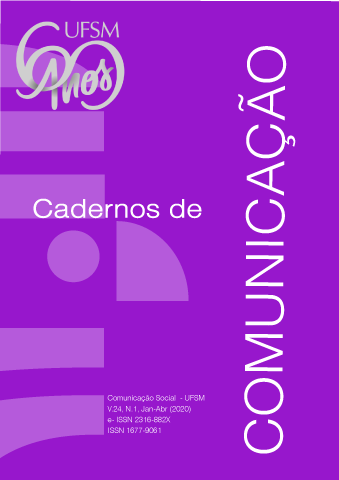Basis for Higher Education Policies in the Uruguay-Brazil border region
DOI:
https://doi.org/10.5902/2316882X31384Keywords:
social impact, educational coverage, emigrationAbstract
This research makes a consultation to the binational population about their demands in relation to higher education, based on the hypothetical possibility of absence of prior and democratic consultations on the desires of a border population that is far from the centralism of the capital. Data was collected on the degree of knowledge that residents have about the existence of public universities and their offered courses, as well as degree programs that they would like to be taught in the region. It is concluded that the degree of knowledge of the universities varies greatly: between 93% and 35%, the knowledge of the total offered courses ranges between 15,1% and 0,5% and that of the ten most demanding courses , six are being covered in the present. As a consequence, a part of the population of university-age must migrate to other distant cities.Downloads
References
BERNARD, Charlot. La relación con el saber, formación de maestros y profesores, educación y globalización. Ed. Trilce. Montevideo. 2008.
BOURDIEU, P. Capital cultural, escuela y espacio social. Argentina: Siglo XXI, 2010.
BRASIL. Lei nº 13.005 de 25 de junho de 2014. Disponível em:<http://www.planalto.gov.br/ccivil_03/_Ato2011-2014/2014/Lei/L13005.htm >. Acesso em: 12 dez. 2015.
BRUNNER. J.J. 2003. Políticas y mercado de educación superior: necesidades de información. http://www.cieplan.cl/media/publicaciones/archivos/24/Capitulo_1.pdf.
CALHOUN, C., LIPUMA, E. y POSTONE, M.(Ed.) (1993): Bourdieu: Critical Perspectives. Polity Press; Oxford.
CLARK. B.R. 1983. The Higher Education System. Academic Organization in Cross-National Perspective, Berkeley, Los Angeles, London, University of California Press.
DIDOU AUPETIT, S 2006. Internacionalización de la educación superior y provisión transnacional de servicios educativos en América Latina: del voluntarismo a las elecciones estratégicas. Seminario internacional IESALC – UNESCO/Conferencia de Rectores Panamá, 2006 http://firgoa.usc.es/drupal/files/didou.pdf.
FALCO PAULA GLÁUCIA DE, SOARES JÚNIOR FJ. e GONÇALVES ALTAF J. 2015. Avaliação da Demanda por Novos Cursos de Ensino Superior na Cidade de Juiz de Fora. Disponível em: Acesso em: 1°. dez. 2015.
FERNÁNDEZ AGUERRE, T. Determinantes sociales e institucionales de la desigualdad educativa en sexto año de educación primaria de Argentina y Uruguay, 1999. Una aproximación mediante un modelo de regresión logística. Revista Mexicana de Investigación Educativa noviembre-diciembre 2002, vol. 7, núm. 16 pp. 501-536.
GARCÍA DE FANELLI, A. JACINTO, C. 2010. Equidad y educación superior en América Latina: El papel de las carreras terciarias y universitarias. Revista Iberoamericana de Educación superior. (1) (1). 58-75.
HANNERZ, U. (1998): Conexiones transnacionales. Cultura, gente, lugares. Madrid, Cátedra, 290 pp.
INFANTE G. S.; ZÁRATE DE LARA G. P. Métodos estadísticos. Ed. Trillas. 646. México DF. 1994.
INSTITUTO BRASILEIRO DE GEOGRAFÍA E ESTATÍSTICA (IBGE): Censos poblacionales 2000-2010. Brasil.
INSTITUTO NACIONAL DE ESTADÍSTICA (INE): Demografía y Estadísticas Sociales 2017. Encuesta Continua de Hogares. Uruguay. <http://www.ine.gub.uy/> Acceso en 26 de septiembre de 2017.
MARTÍN CRIADO, Enrique e IZQUIERDO MARTÍN, Javier (1992): "Sociología de la gestión empresarial de la mano de obra", Sociología del Trabajo, nueva época, otoño-invierno, nº 17.
MAYORGA R. Los desafíos a la universidad latinoamericana en el siglo XXI. Revista Iberoamericana de Educación. 1999;(1):15-20.
MAZZEI, E: M. DE SOUZA. La Frontera en Cifras. Melo, departamento de Cerro Largo 2012. 1ª Edición. CBA. 60 p. 2013.
RISTOFF, D e GIOLO, J. 2006. O Sinaes como Sistema. Revista brasileira de Pós Graduação v. 3, n. 6.
ROESCH, S. M. A. Projetos de Estágio e de Pesquisa em Administração. 3 ed. São Paulo: Atlas, 2009.
SQW. SEGAL QUINCE WICKSTEED LIMITED 1999 “Providing public information on the quality and standards of higher education courses”; HEFCE (ref 99/61), October 1999 http://www.hefce.ac.uk/pubs/hefce/1999/99%5F61.htm
TENTI FANFANI, Emilio. Nuevos temas en la agenda de política educativa. Editorial Siglo XXI Buenos Aires, 2008.
VALDÉS VENTO, AC; I del R. MORALES SUÁREZ; J. C. DÍAZ CABRERA; A.L. SÁNCHEZ FUENTES; R. CUALLAR ÁLVAREZ. Criterios de evaluación de la variable "pertinencia e impacto social" específicos para la carrera de Medicina. Educación Médica Superior. 2009; 23(3): 45-62. <http://scielo.sld.cu/pdf/ems/v23n3/ems05309.pdf> Acceso en 22 de Febrero de 2017.
Downloads
Published
How to Cite
Issue
Section
License
Os autores de textos aprovados pelos pareceristas de Cadernos de Comunicação cedem automaticamente e sem qualquer tipo de ônus o direito à primeira publicação do material submetido.







